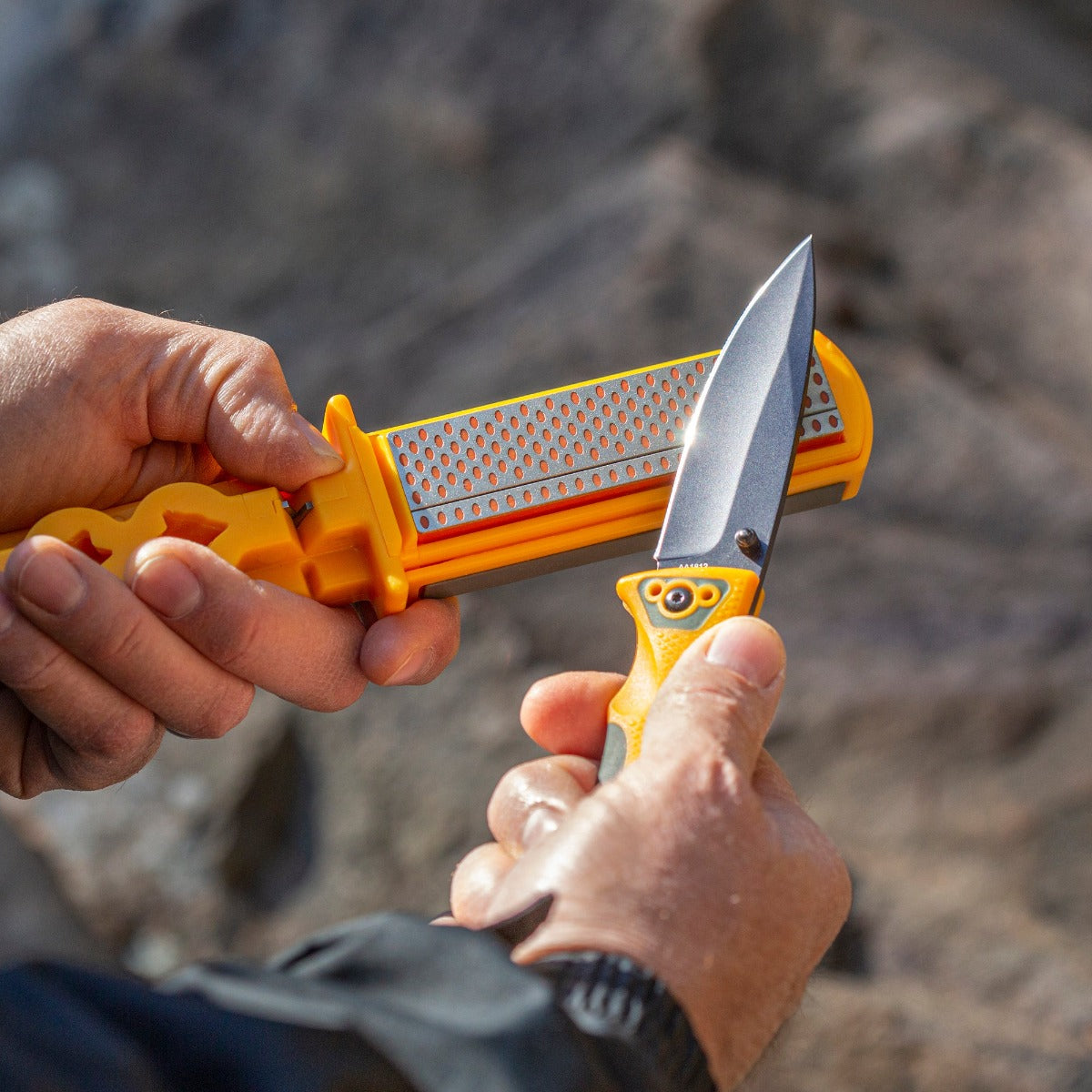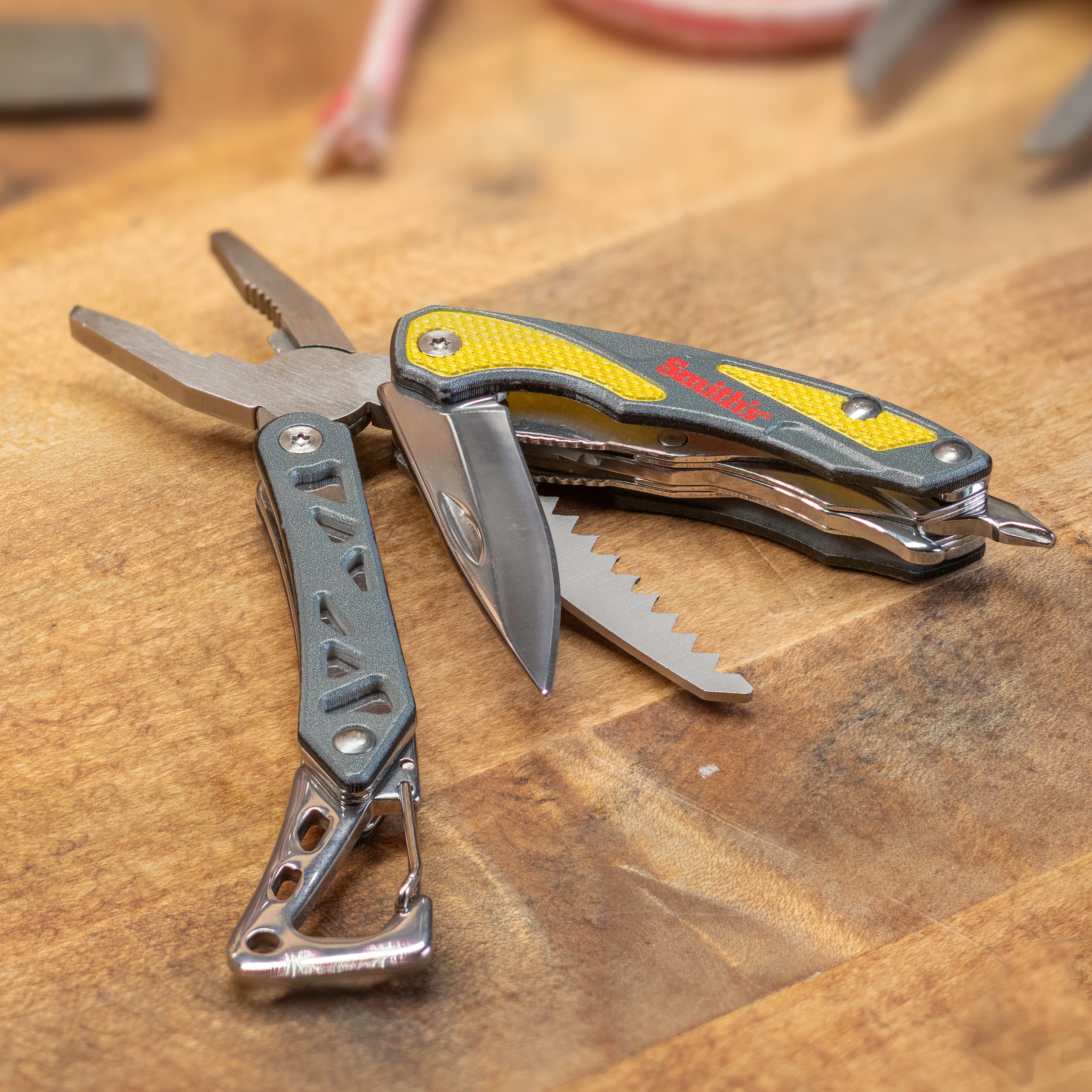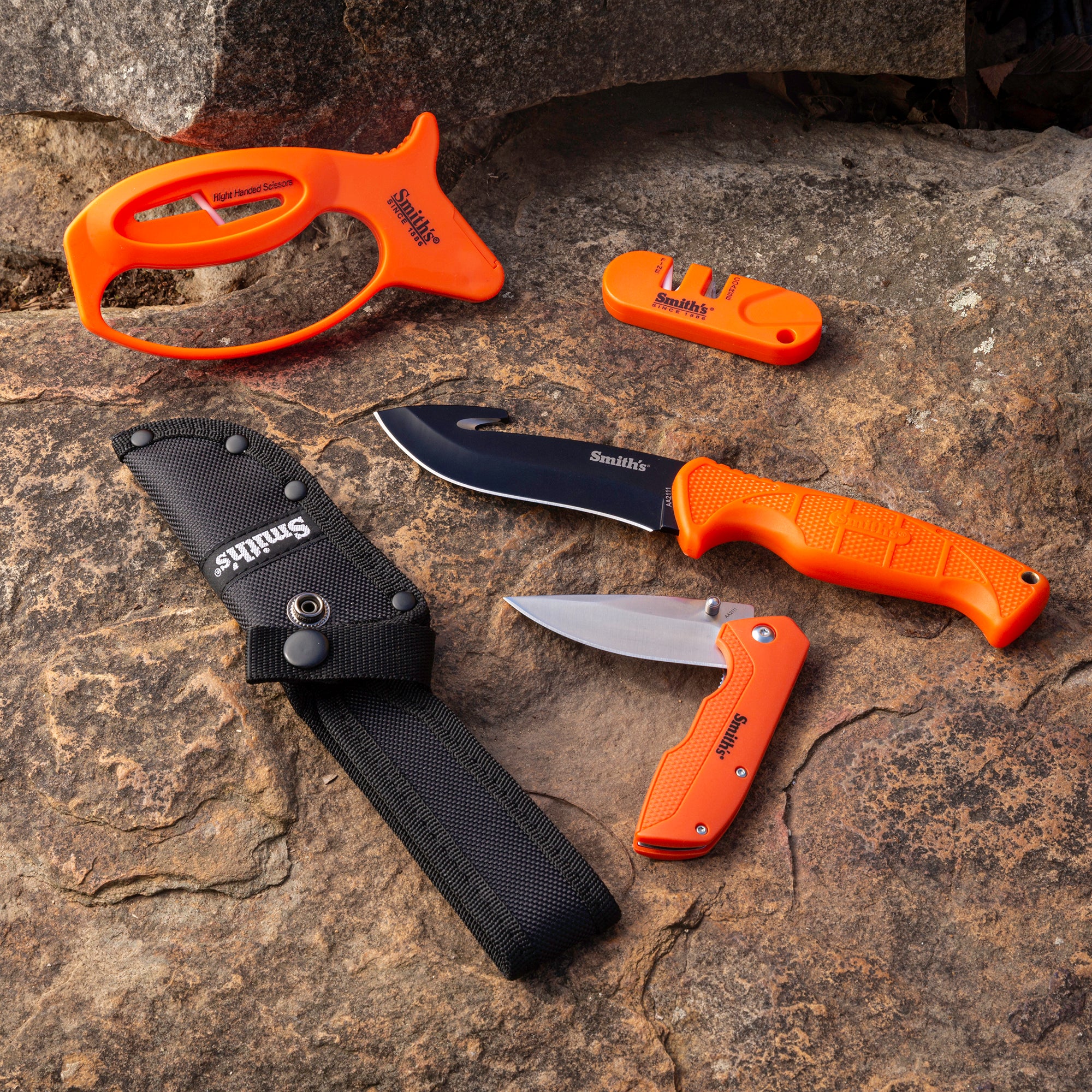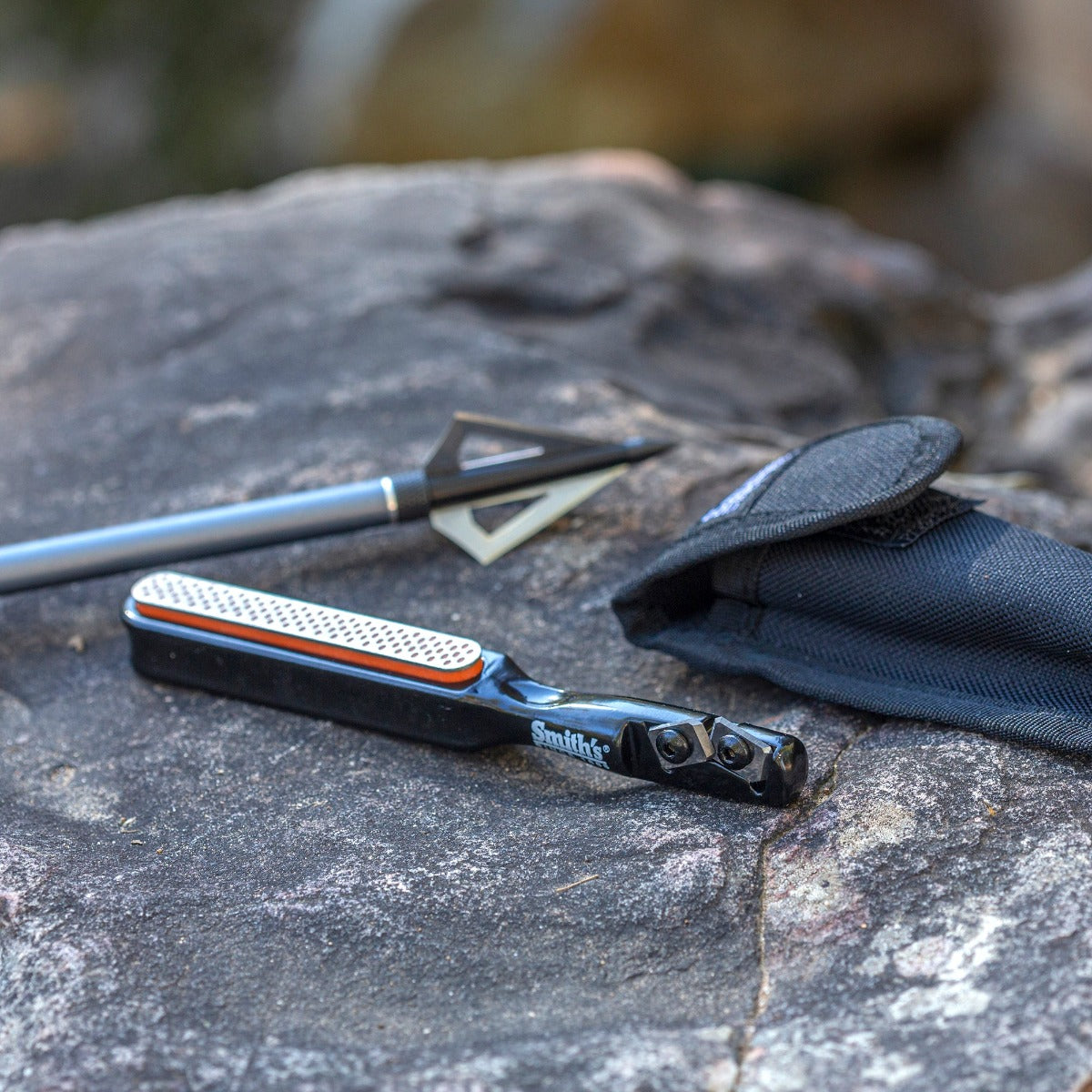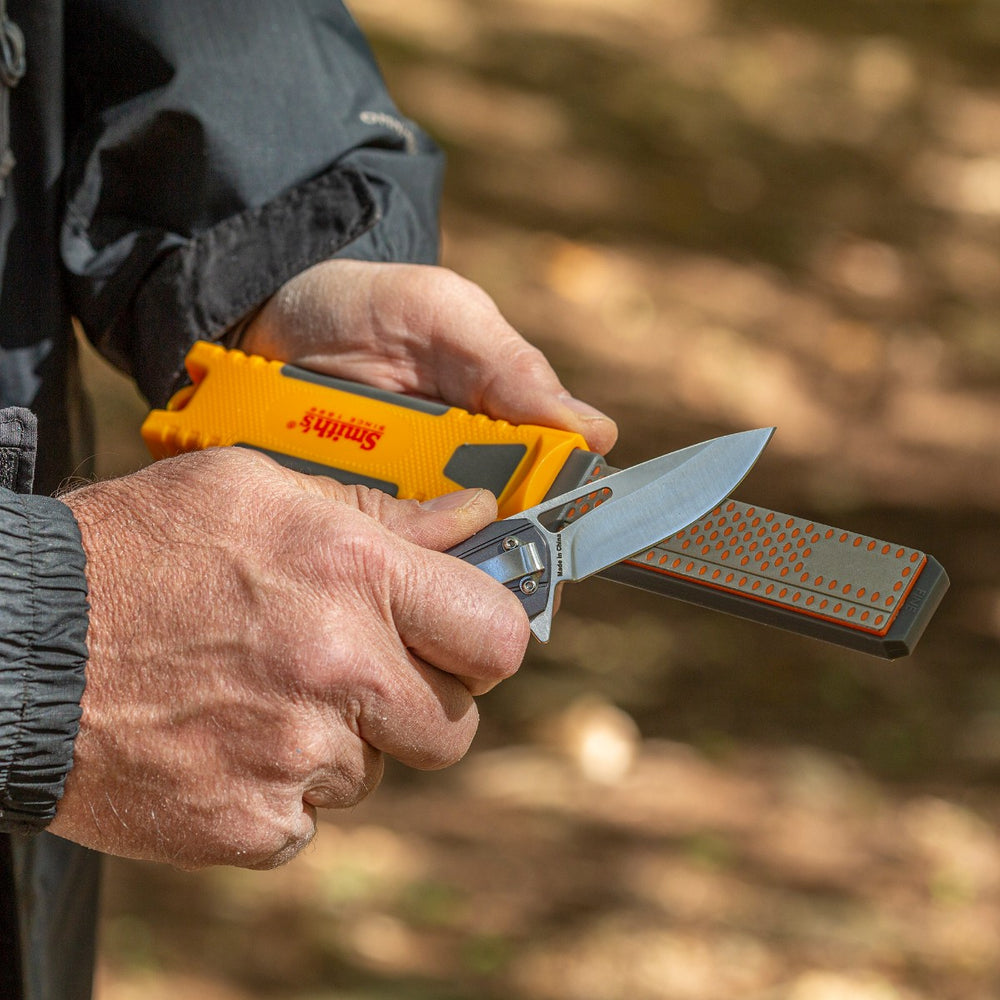HOW TO GET RUST OFF A KNIFE
Rusting is a common issue that most knife owners will encounter. When your favorite kitchen or pocket knife loses its shiny look, replaced by unsightly reddish spots, you will then be left wondering how you can get the rust off so it goes back to looking like new.
The Short Answer: It's possible to restore your rusted knife with a few household ingredients – vinegar, baking soda, lemon, and potatoes. These can be used in tandem for heavy rusting or for light rust stains just one of these will do the trick!
The Four Methods of Rust Removal
In most cases, rust on your knife is merely iron oxide that forms when the iron in your knife reacts with oxygen. Rust isn't just unappealing; it can also affect the performance of your knife. Let's explore four ways to remove rust from your blade.
Method #1: Vinegar
Acidic substances are great at breaking down rust. White vinegar, with its acetic acid content, is a readily available option you can use. To clean, simply soak your rusty knife in vinegar for about five minutes, then scrub off the rust using steel wool or a wire brush. Rinse with warm water, dry thoroughly with a paper towel, and apply a protective coating of oil to prevent future rusting.
Method #2: Baking Soda
Baking soda (sodium bicarbonate) is another household ingredient that can clean rust spots effectively. To use the baking soda method, create a cleaning solution by combining three parts baking soda with one part water. Apply this paste onto the rust stain and let it sit for a couple of hours. Using a toothbrush or steel wool, gently scrub away the rust.
Method #3: Lemon Juice
Lemon juice's citric acid can also act as a natural rust remover. Squeeze a lemon and soak the blade in its juice for a few minutes. Brush the rust off using a clean rag or fine steel wool. Dry the knife before storing it to prevent any new rust formation.
Method #4: Potatoes
The oxalic acid in potatoes is an unsung hero of rust removal. Cut a potato in half, dip it in dish soap or baking soda, and rub it against the rusted blade. The rust will adhere to the potato, leaving your knife clean.
Preventing Knife Rust and Tips for Different Blade Materials
While removing rust from your knives is relatively simple, preventing rust from forming in the first place is an even better strategy. It starts with understanding that different blade materials come with different care instructions.
1. Stainless Steel Knives: Despite the name, stainless knives can still rust. To care for these, make sure you dry them immediately after washing. Avoid leaving them in a wet sink or dishwasher. Store them in a dry place.
2. Carbon Steel Knives: Carbon steel has a high susceptibility to rust. However, a protective coating of some form of oil after cleaning can prevent oxidization. Don't leave these knives soaking in water, and ensure they dry thoroughly after each use.
3. Titanium Knives: Titanium knives are generally resistant to rust due to a protective oxide layer on their surface. Nonetheless, avoiding harsh chemical cleaners and ensuring they are dry after washing can prolong their lifespan.
Exercise Proper Care to Prevent Rusting
Maintaining the blades of your knives also involves spotting early signs of rusting. Small rust spots should be treated immediately to prevent them from spreading. Remember, it's easier to clean rust off a small area than to wait for it to become a large patch.
Lastly, remember your kitchen habits also play a big part. Avoid using your knives on hard surfaces that can cause nicks and scratches where rust can begin to form. By practicing proper knife care, you can increase the longevity of your kitchen knives, pocket knives, or any other type of blade.
Cleaning Hack: In case of stubborn rust, cleaning substances like Bar Keeper's Friend Cleanser can work wonders for rust removal. Used with a rust eraser or steel wool, it is a potent rust-busting combination.
How to Get Rust Off a Knife: A Wrap-Up
In conclusion, rust on knives is a frustrating issue, but it's straightforward to combat with household methods like vinegar, baking soda, lemon, or even potatoes. By understanding your blades' care needs, you can prevent rust altogether. That's where we can help. From our origins as a small Arkansas stone company, Smith's has grown to lead the knife and scissor sharpening industry, offering high-quality knives designed with materials that minimize rust build-up.
So come explore our range of knives and sharpeners, and give your knives the care they deserve!


